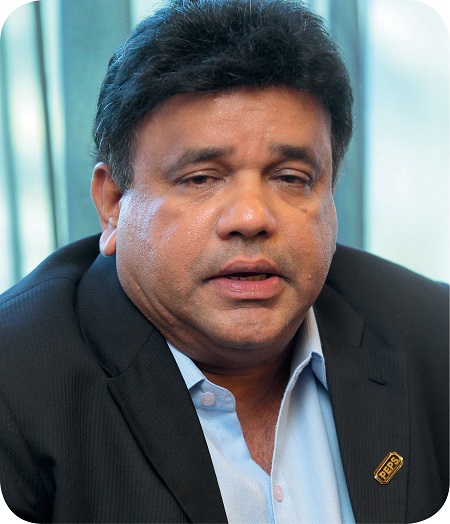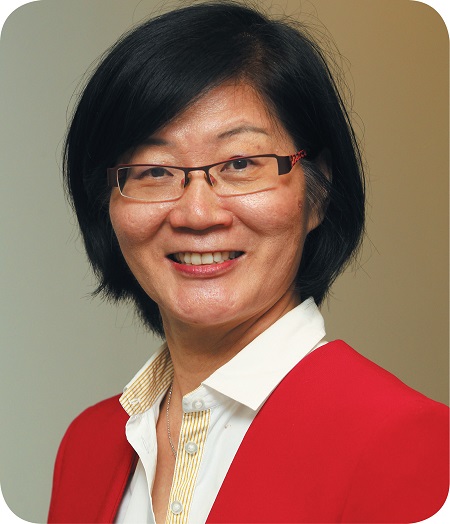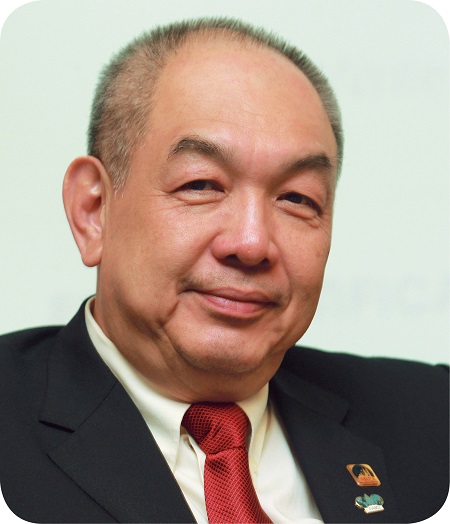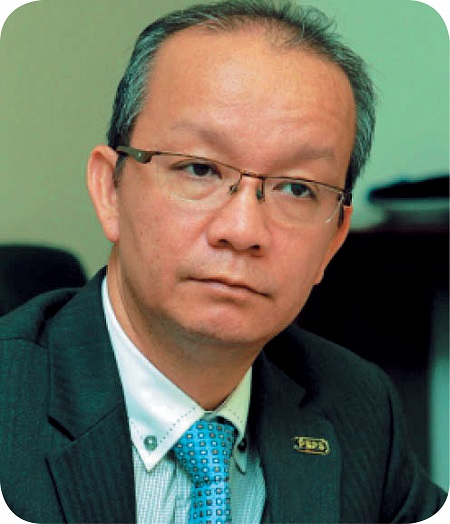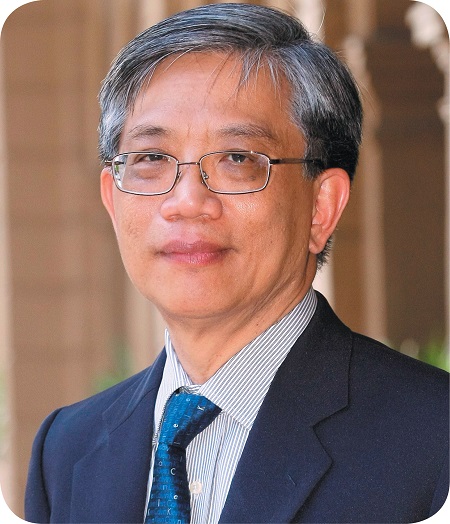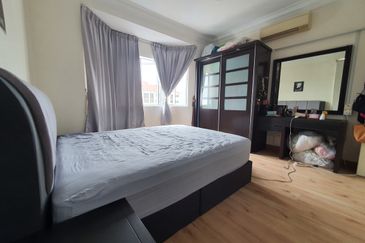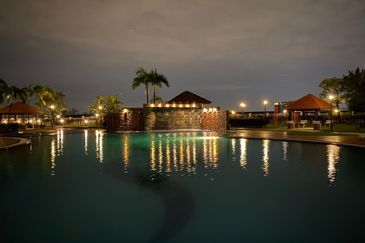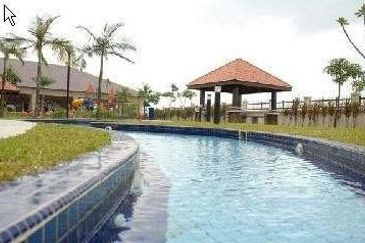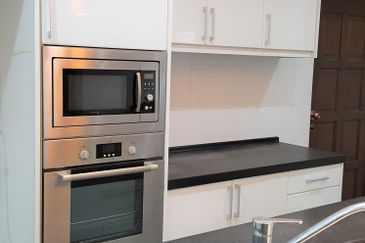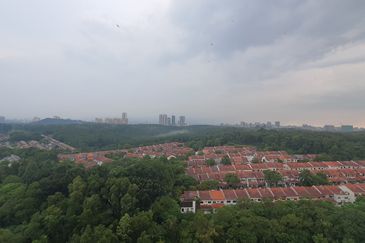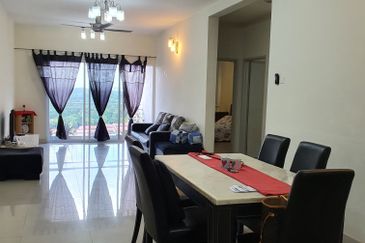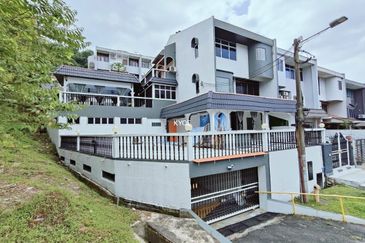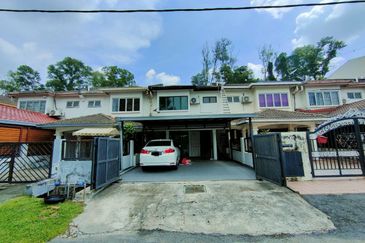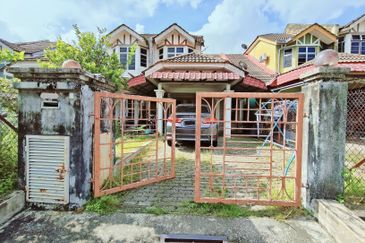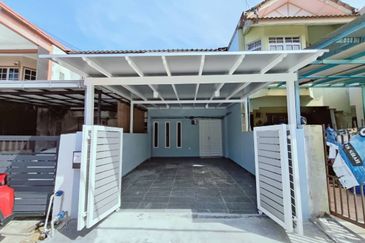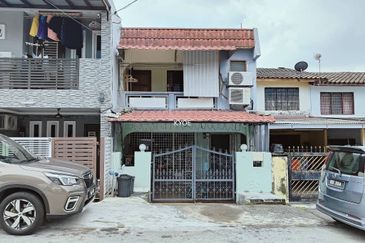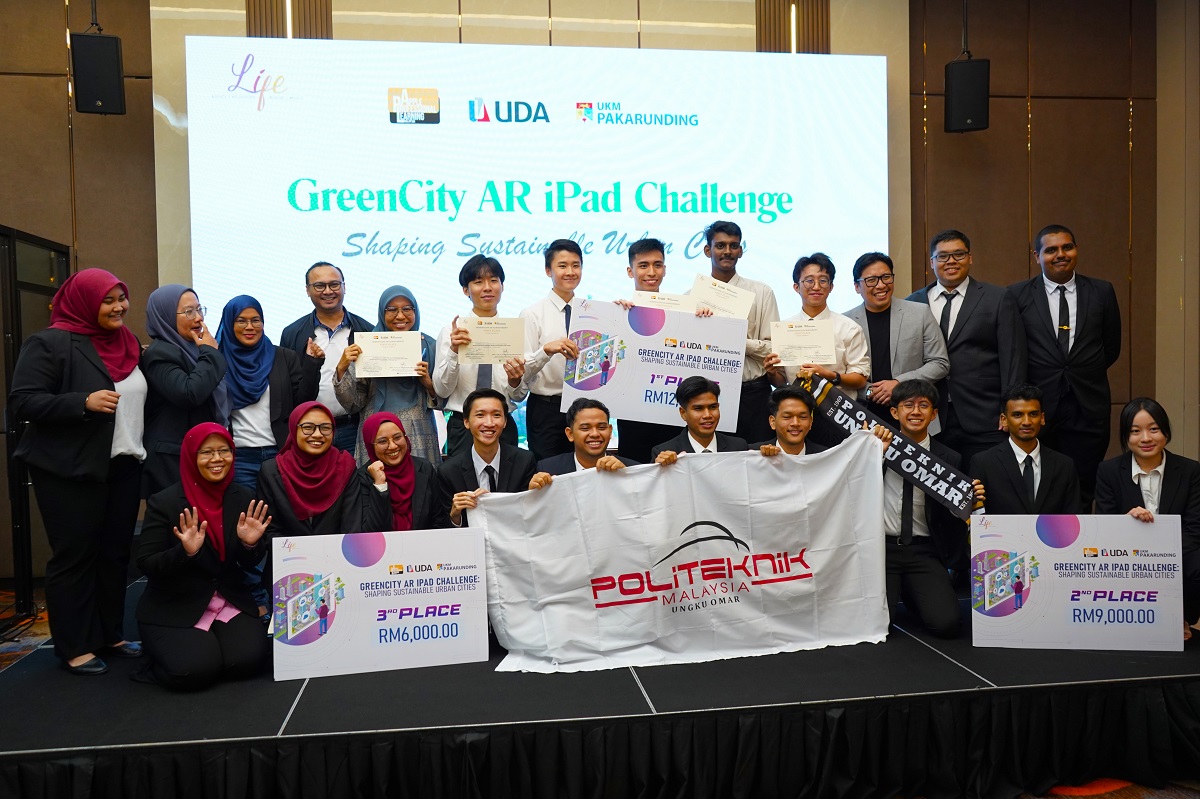
It’s the New Year and while 2017 isn’t expected to be any different from the rather “meh” 2016, it should not be all gloom and doom. For those looking to invest or buy real estate, some investment gurus will tell you that bad times make for good buys, but of course like every investment, we would have to weigh the risks and benefits.
To help set us on our way in our property investment quest in 2017, TheEdgeProperty.com asked 20 real estate consultants, agents and negotiators to tell us their choice of the best property investment locations in Greater Kuala Lumpur and Klang Valley for 2017.
The experts that took part in the poll were MIP Properties Sdn Bhd founder and principal Alan Kuan, KGV International Property Consultants executive director Anthony Chua, CBD Properties (KD) Sdn Bhd executive director Daphne Chan, Nawawi Tie Leung Real Estate Consultants Sdn Bhd managing director Eddy Wong, Hartamas Real Estate Sdn Bhd group managing director Eric Lim, Malaysian Institute of Estate Agents (MIEA) president and Mapleland Properties Sdn Bhd principal Erick Kho, CBRE|WTW managing director Foo Gee Jen, VPC Alliance Property Consultants managing director James Wong, PA International Property Consultants (KL) Sdn Bhd managing director Jerome Hong, Oregeon Property Consultancy Sdn Bhd director Joean Lee, Reapfield Group chief operating officer Jonathan Lee, MacReal International Sdn Bhd founder Michael Kong, Knight Frank Malaysia managing director Sarkunan Subramaniam, Metro Homes director See Kok Loong, PPC International managing director Datuk Siders Sittampalam, LaurelCap Sdn Bhd executive director Stanley Toh, The One Property International executive director Stephen Yew, Henry Butcher Real Estate Sdn Bhd chief operating officer Tang Chee Meng, One Sunterra Properties Sdn Bhd head of agency Terence Yap and JLL Property Services (Malaysia) Sdn Bhd managing director YY Lau.
It was observed that many of the “hotspots” were chosen because of their transport infrastructure as well as the presence of mega projects in the making such as the Tun Razak Exchange (TRX), Bandar Malaysia and KL Metropolis as they offer some fresh leads for investors.
The improved connectivity from major hubs outside KL and its fringes to KL city centre and vice versa has brought investors’ attention back to the city centre and to mature areas such as Damansara Heights.
On the overall market outlook for the year, the majority thinks that consumer sentiment will remain bearish while the strict lending environment will continue to dampen sales.
 Some foresee the downtrend in the market to continue while investors’ holding power will be challenged. However, the more optimistic ones say the completion of some major infrastructure projects and the start of others including the mega developments will spur buying interest. Some also feel the weakening ringgit will attract foreign buying interest especially properties in KLCC and Mont’Kiara.
Some foresee the downtrend in the market to continue while investors’ holding power will be challenged. However, the more optimistic ones say the completion of some major infrastructure projects and the start of others including the mega developments will spur buying interest. Some also feel the weakening ringgit will attract foreign buying interest especially properties in KLCC and Mont’Kiara.
At the end of the day, all concur that buyers will be the “winners” in 2017 as competition among developers heighten and we can expect some good perks for buyers.
Here are the key takeaways from the poll:
1. Relook at Kuala Lumpur city centre and Mont’Kiara
Suggested locations: KLCC, Ampang KL, Mont’Kiara, KL Metropolis, Bandar Malaysia and TRX.
The positive newsflow of TRX, Bandar Malaysia and KL Metropolis developments, coupled with the announcement of the KL-Singapore High Speed Rail (HSR) project, has drawn market attention back to the city centre.
Although there are concerns of oversupply in the high-end residential segment, prices have stabilised and owners are becoming more realistic in their asking prices.
2. Revisit old mature townships
Suggested locations: Cheras, Kepong, Sentul, Jalan Kuching, Jalan Ipoh, Selayang and Old Klang Road.
A large population and good amenities support the growth of these mature areas. Some of these areas were overlooked during the last boom time as people were looking at new and more exciting offerings.
However, during a downturn, homebuyers — especially those who are buying for their own-stay — tend to go back to basics and choose to stay at places where they are familiar with, which have complete amenities and are affordably priced.
3. Continue moving south
Suggested locations: Kajang, Semenyih, Sepang, Kota Warisan, Cyberjaya, Putrajaya and Bangi.
With improved highway accessibility, the southern part of Klang Valley or Greater KL doesn’t sound that far away from KL city centre or Petaling Jaya.
As new township developments by established developers slowly take shape, homebuyers are gaining more confidence in these developments and may consider purchasing a home in a new address.
For investors, as property prices in the new townships are comparatively cheaper than similar offerings in more established areas in the Klang Valley, the investment theory of “buy low and sell high” may apply for properties in such locations.
4. Follow the MRT (or LRT) line
Suggested locations: Ara Damansara, Tropicana, Kota Damansara, Mutiara Damansara, Bandar Utama and Kwasa Damansara.
With good public transportation systems, homebuyers no longer have to limit their choices to places near their workplace; they might now consider buying properties near MRT/LRT stations.
Rental demand will be strong for properties located close to public transportation systems, especially those within walking distance to the stations.
5. Tap on new mega projects and township developments
Suggested locations: Klang, Shah Alam, Teluk Panglima Garang, Bukit Jalil, Ijok, Rawang and Kundang.
Enhanced highway connectivity to these areas has attracted developers to acquire big plots for green field developments which allow them the freedom to build without the constraints of existing infrastructure and offer lifestyle products, back to nature environments and aesthetically pleasing homes.
Sarkunan Subramaniam
Knight Frank Malaysia managing director
The top three hotspots
The areas that investors should focus on are Damansara Heights, Sungai Buloh and Kajang, in that order. Damansara Heights has been very much left behind due to the lack of public transportation infrastructure, but with the MRT Line 1 (MRT Sungai Buloh-Kajang Line) seeing full completion in 2017, the area will rise and catch up with neighbouring areas such as Bangsar South, Mid Valley City and KL Sentral.
Sungai Buloh and Kajang are also expected to benefit from the new public transportation infrastructure. Being one of the terminus of the MRT Line 1, Sungai Buloh will see a tremendous shift with help from the MRT line.
Meanwhile, as a very congested area, Kajang will also move ahead due to the implementation of the public transportation.
Catalysts and challenges
The MRT Line 1 is expected to bring more vitality and ease traffic congestion in the areas. Other catalysts are the ongoing urbanisation and redevelopment projects in these areas such as Kwasa Damansara in Sungai Buloh by the Employees Provident Fund, Pavilion Damansara Heights by Tan Sri Desmond Lim in partnership with the Canada Pension Plan Investment Board, Damansara City in Damansara Heights by GuocoLand Ltd and the general development in Kajang.
The greatest challenge for the property market in the three chosen areas is the slowdown in Malaysia’s economy. However, with some efforts taken by the government, we should see the market recover towards the end of 2017.
Property price trends
We have already seen some market activity in Damansara Heights, Sungai Buloh and Kajang. For example, there is a spike in the rental of office spaces in Damansara Heights due to the completion of new, top quality office buildings there which is bringing up the level of rents in the area.
The current average rent for old office buildings in the area is RM5.50 psf whereas the rental for newly completed office buildings is about RM7 psf.
Meanwhile, the average transaction price psf of terraced houses in Sungai Buloh has been rising since 2013. The average transaction price psf was RM339 as at Dec 8 last year, up 14.14% from RM297 psf as at end-2013.
The landed houses in Kajang 2 were being transacted at an average of RM484 psf as at Dec 8 last year, an increase of 32.6% from RM365 psf as at end-2013.
The property market in 2017
The residential properties in Damansara Heights will be able to hold their current prices and even slightly increase as the MRT Line 1 is expected to bring renewed demand in the area.
Apartments, condominiums and landed properties in the area will see better times with the improved infrastructure, but the positive impact on the landed properties may not be as great as strata properties because a lot of people who live in landed homes do not really use the MRT for transport.
Going forward, the property prices in Sungai Buloh and Kajang will also slightly improve and would be better off than the overall property market, thanks to the positive impact from the MRT Line 1.
I expect these three areas to do well in the next two to three years.
Joean Lee Sheau Huey
Oregeon Property Consultancy Sdn Bhd director
The top three hotspots
Bukit Jalil, Kota Damansara and Semenyih. Bukit Jalil and the surrounding areas will benefit from notable developments such as Bukit Jalil City, Paradigm Garden City in Taman OUG and Bandar Malaysia in Sungai Besi. Meanwhile, with the current connectivity and the existing vibrancy in the area, Kota Damansara is another bright spot.
In Semenyih, a lot of major developers have ventured into the area to undertake township developments, and with the huge undeveloped land in the area, it is poised to become a hotspot going forward.
Catalysts and challenges
One of the catalysts for the three areas is the public transportation network such as the MRT. Furthermore, the upcoming mega shopping mall and mixed developments in these areas will create many job opportunities and boost demand for properties.
However, there may be too much supply of a similar product offering in the three areas which could hinder their future growth.
Conventional developments that give what have already been given such as swimming pools will not be enough to satisfy buyers as they have raised their level of lifestyle requirements. The unique or special will have a higher chance of standing out from the competition. Developers will have to offer unique products to cater to the new generation’s expectations.
Another potential challenge faced by these areas would be traffic congestion if the areas are not planned properly.
Property price trends
The real property prices in Bukit Jalil, Kota Damansara and Semenyih would very likely be stagnant for now despite the bright outlook, and commercial properties would face a bigger challenge in sustaining their current prices.
The property market in 2017
If there is an increase in the property prices, it will be minimal depending on the product, in view of the current situation.
See Kok Loong
Metro Homes Sdn Bhd director
The top three hotspots
Kuala Lumpur city centre, Mont’Kiara and Damansara Heights because the areas would be sought after by foreign buyers in 2017, especially buyers from mainland China.
These areas are in good locations that enjoy both strong local support as well as foreign interest.
Catalysts and challenges
The weakened ringgit will help attract more foreign buyers into the local property market. With their strategic locations and well-known addresses, Kuala Lumpur city centre, Mont’Kiara and Damansara Heights will remain the preferred choices for mid- to high-end income buyers.
On the other hand, the volatility of the ringgit could affect investors’ appetite and plans for buying Malaysian properties. Meanwhile, local buyers are adopting a wait-and-see stance while looking out for good deals and incentives to buy in the current sluggish market.
The government also needs to come up with a more transparent and consistent guideline and policy on foreign investment to boost the property sector.
Property price trends
While the property prices in the three areas are generally stable now, they are facing pressure and are likely to trend downwards especially if the properties are owned by speculative investors without holding power.
Supply-wise, new supply of residential properties in the chosen areas is limited for 2017 but more units would be completed from 2018 onwards.
Except for KL city centre, the supply of commercial properties would be limited in Mont’Kiara and Damansara Heights as the two areas are mature residential neighbourhoods with limited land.
The property market in 2017
Property prices in the three areas will be stable or drop 2% to 3% in 2017 as the overall property market is expected to be sluggish in 2017 before recovering in 2018.
James Wong
VPC Alliance Property Consultants managing director
The top three hotspots
The areas along the proposed LRT Line 3, which are from Bandar Utama to Klang, and the areas along the proposed MRT Line 2 from Sungai Buloh to Putrajaya. These areas will see improved accessibility and infrastructure.
The last hotspot is Sungai Besi/Chan Sow Lin. The area is near to the future mega project of Bandar Malaysia and the Kuala Lumpur-Singapore High Speed Rail (HSR) terminus. The area will see improvements on accessibility and infrastructure, as well as more economic activities.
Catalysts and challenges
Rental for both commercial and residential properties in these areas will rise due to increased demand. The LRT Line 3, MRT Line 2 and HSR infrastructures will enhance these areas economically and turn some places near the stations into transit-oriented developments (TOD) that integrate housing, offices, shopoffices and retail elements within walking distance.
However, as projects classified as TODs normally have higher plot ratios and densities, they may create traffic congestion. Another thing to keep in mind is that the LRT Line 3 and HSR are still in the planning stages and have not yet commenced work, hence there is the risk of a change in alignment or station location.
Property price trends
Both commercial properties and residential properties along the MRT and LRT lines have had an appreciation of above 10% over the past two years.
For example, according to VPC Alliance’s data, Palm Garden Apartment in Bandar Baru Klang has had a price appreciation of 36.4% to RM150,000 in 3Q2016 from RM110,000 during the same period in 2015. Palm Garden Apartment is 200m away from the proposed LRT Line 3 station.
Another example is a double-storey shoplot in Seksyen 7, Shah Alam. It was worth RM1.03 million in 2015 but in 3Q2016, the price jumped 43.7% to RM1.48 million. It is also within walking distance to the proposed LRT Line 3 station.
The property market in 2017
In 2017, house prices in these areas will still rise, in anticipation of the incoming infrastructure projects. Both residential and commercial properties in the mentioned areas are expected to show an upward trend in the next three to five years.
Datuk Siders Sittampalam
PPC International managing director
The top three hotspots
Semenyih for its township and mixed developments; Sentul and Jalan Kuching/Selayang for their mixed developments.
Catalysts and challenges
Transit-oriented developments will continue to be attractive generally to young urban professionals. In addition, the areas mentioned have good access and connectivity such as being located close to highway interchanges (such as Setia EcoHill and Eco Majestic which are both located in Semenyih). Developers are linking highways by building interchanges and links as part of their township developments. Established developers offering products with modern and innovative designs and which are competitively priced would fare well in a challenging market.
The property market in 2017, in particular the residential sector, would face challenges including the slowdown in the economy contributed by weak commodity prices, the rising cost of living, the depreciating Malaysian ringgit and the declining volume of property transactions.
As a result, the market will see developers adopting “hard-selling” marketing strategies such as providing incentives and freebies. Projects may be deferred which could mean an indirect reduction of affordable homes coming on stream. Generally, the medium to high-end residential developments finance the development of affordable homes by cross-subsidy. Market sentiments would not be bullish and sales of launched units would be lacklustre. As such, developers would be prepared to accept lower profits and price the units lower in order to attract sales.
Property price trends
Semenyih is dominated by landed residential development. The few high-rise residential developments are confined to low-medium-cost apartments. However, there are one or two high-rise residential projects being launched in the form of serviced apartments and Small-office, Home-offices (SoHos). The incoming and planned supply for this type of development has been on the rise.
Over the last few years, Semenyih has seen an accelerated pace of development which is gradually moving down south towards Beranang. Beranang, therefore, would see a spillover effect of Semenyih’s rapid growth. New serviced apartments and SoHo units are priced between RM300 to RM600 psf while landed residential properties such as double-storey terraced houses and semi-dees are priced between RM450,000 to RM600,000 per unit and RM800,000 to RM1.1 million per unit, respectively.
The new township developments generally offer gated-and-guarded residential projects. The supporting commercial developments are mainly shopoffices. There are currently no retail malls except hypermarkets.
The property market in 2017
Given the challenges, the residential market would be flat and perhaps experience a decline in prices of high-rise apartments where oversupply is seen in certain locations. Likewise, the fundamentals do not support any projection of growth in the rental market. 2017 will see the handover of completed units purchased under the Developer Interest Bearing Scheme and the purchasers would either place them on the market for sale or for rent. The question arises whether the returns from the rent received are justified or sufficient to cover the mortgage repayment to some extent.
Stephen Yew
The One Property International executive director
The top three hotspots
KLCC — under the Greater KL transformation plan, KLCC as the metropolitan and capital of Malaysia has enjoyed an international appeal to global investors. The properties in and around KLCC have become the first pick for foreign investors and domestic buyers.
Kajang — for the past decade, development gravity has shifted to the southern region of the Klang Valley with the development around major infrastructure (KLIA), government administrative agencies (Putrajaya), education institutions and MSC status belt (Cyberjaya and Xiamen University in Dengkil).
Sungai Buloh — Northern region of Klang Valley (Sungai Buloh, Rawang, Bukit Beruntung) has long been neglected in the past by developers and was labelled as a less affluent area with poor connectivity to KL city. The development landscape has changed drastically recently due to the booming Kota Damansara in Sungai Buloh and the implementation of the MRT Sungai Buloh-Kajang Line, the LATAR highway and redevelopment (Kwasa Damansara) of the Rubber Research Institute land. Big players have begun to acquire and deposit landbank in the northern region of the Klang Valley.
Catalysts
KLCC — The Greater KL transformation plan; implementation of the MRT and LRT lines; international projects such as the Tun Razak Exchange and Bandar Malaysia.
Kajang — Infrastructure upgrades such as MRT Sungai Buloh-Kajang Line; SILK highway; LEKAS Highway; spillover effects from rapid developments in neighbouring areas, namely Semenyih, Bangi, Putrajaya, Cyberjaya, Dengkil and Sepang.
Sungai Buloh — Infrastucture upgrades such as MRT Sungai Buloh-Kajang Line, LATAR Highway, DASH Highway and the premier township development of Kwasa Damansara which is a 15-year project spanning 3,000 acres.
Challenges
KLCC — Political and economic issues as foreign investors are sensitive to political or economic instability and uncertainty.
Kajang — Pressure and competitive challenges from the neighbouring areas such as Semenyih, Bangi, Cyberjaya and Dengkil. These areas are thriving with rapid developments and have absorbed a lot of investors and buyers from Kajang.
Sungai Buloh — The economic downturn as forecast by analysts. Issues like oversupply, poor occupancy and falling rental rates and selling prices for retail units and shoplots may affect Sungai Buloh and Kota Damansara’s commercial centres should the economic condition deteriorate.
Property price trends
Residential properties in KLCC mainly comprise high-rise serviced residences and condominiums. Prices in general are trending down as low crude oil prices have affected the expatriate rental market here.
Residential properties in Kajang are mainly landed property which have been seeing a downward trend lately.
In Sungai Buloh, demand for landed property has softened although prices are still seeing appreciation albeit lower than previous years.
Under commercial properties, KLCC is made up of office space, hotels, purpose-built commercial buildings and retail units. In general, there is an oversupply of office space in KL city. The slowdown has also impacted demand for corporate offices.
Commercial properties in Kajang mainly comprise multi-storey shoplots, office lots and retail units. In general, the trend for commercial properties in selected areas is still seeing some upward price adjustment.
Commercial property types in Sungai Buloh are mainly multi-storey shoplots, retail units and office lots. A declining trend is observed due to the current economic slowdown.
The property market in 2017
In 2017, I expect housing prices to moderate and consolidate. The property outlook for 2017 remains challenging. There are many factors which will impact our property segments such as the domestic political and economic environments, impending general elections, commodity and crude oil prices, falling ringgit, negative property market sentiments, rising inflation rate, stringent bank lending policy and others. External factors will also impact the property sector such as Brexit and new US policies under the administration of President-elect Donald Trump.
Property prices will rebound in 2018 (or after the general elections) when the political and economic environments improve and become more stable. Pent-up demand from investors and homebuyers will drive property prices up. Rising development cost is already directly contributing to property price hikes.
Alan Kuan
MIP Properties Sdn Bhd founder and principal
The top three hotspots
KL Metropolis, Mont’Kiara and KL City Centre (KLCC) as the properties in these areas are priced competitively and new projects are selling with attractive promotional packages which are unseen of during better times.
It’s a great opportunity now to purchase properties at such great locations as these areas are proven “impeccable” locations with a “prestigious address” that represent the buyers’ lifestyle and status.
Catalysts and challenges
Mont’Kiara and KLCC are already established areas with good amenities and easy accessibility to major hubs in the Klang Valley. They will continue to draw buyers’ attention.
Meanwhile, KL Metropolis by Naza TTDI will see strong demand due to its modern development concept of a sustainable city as well as its good location close to the city centre.
It is also earmarked to become KL’s largest shopping destination and MITEC (Malaysian International Trade Exhibition Centre) is set to be Malaysia’s largest exhibition space which could see more business and job creation in years to come.
However, as the market continues to be slow due to dampened market sentiment, some investors are beginning to lose their holding power. This will impact property price growth.
Property price trends
Both price and rental growth have gradually slowed due to the weak market amid uncertainties. However, the fundamentals of these locations — strategic location, easy access to various amenities and good accessbility — remain intact and will maintain their attractiveness as a long-term investment.
Meanwhile, as growth slows, property owners are becoming more realistic in pricing and are now more willing to review their asking prices.
The property market in 2017
We shall see a steady rise in prices again towards the fourth quarter of 2017 and the price uptrend should continue till 2020.
As the market becomes more challenging, we advise investors and homebuyers to look at the fundamentals of the areas such as existing amenities, the environment, their demographic preference and infrastructure as these will reduce their investment risk over the long term.
YY Lau
JLL Property Services (Malaysia) Sdn Bhd managing director
The top three hotspots
We recommend revisiting the Central Business District (CBD) which comprises the KL City Centre (KLCC), the Golden Triangle and KL city’s old commercial areas as there are good opportunities to pick up commercial properties at realistic prices. The lack of new available land will always mean that the CBD properties will remain sought after particularly its prime properties. New developments, particularly in Bandar Malaysia, which will house the station for the KL-Singapore High Speed Rail, should be watched closely.
New hotspots are emerging on the fringes of KL city which we call KL Prime Fringe. They include KL Eco City, Mid Valley City and Damansara Heights. Given their locations, maturity of the surrounding areas, affluence of the population, better connectivity and integration with large retail developments, hotels and serviced residences, these areas have come onto investors’ radars more recently.
They are well served by many malls including one of the world’s largest. The attraction in these areas is evident from the high rents and capital values. The newly completed phase one of MRT Line 1, from Sungai Buloh to Semantan, will create more interest in Damansara Heights.
The third area to look at would be where a good portion of the Greater KL population resides. Some of the well tenanted offices in the suburbs are occupied by big space users in the service and IT industry. They look for space where they can keep cost down while attracting the right kind of talent.
In short, my selections are:
(1) Kuala Lumpur CBD — KLCC, Golden Triangle and older KL city commercial areas.
(2) KL Prime Fringe comprising KL Sentral, Mid Valley City, Bangsar/Pantai/Kerinchi and Damansara Heights.
(3) Decentralised KL office areas (Selangor) — Petaling Jaya/Mutiara Damansara/Bandar Utama/Kelana Jaya, Subang Jaya, Shah Alam, Klang and Puchong.
Catalysts and challenges
The catalysts for the property market (and the chosen hotspots) would be the increase in public transport coverage and amenities, including existing and new retail malls, F&B outlets, grocery stores, clinics and others for the working population or residents.
Government initiatives like Invest KL and associated infrastrucuture projects will certainly help the property market.
Among the general challenges are tighter loan rules.
While the ringgit remains volatile, investors may prefer to adopt a wait-and-see attitude. No doubt, with a weaker ringgit, Malaysian properties appear cheap. Nevertheless, foreign investors need to be assured that the currency depreciation will not continue.
Weak oil prices will continue to affect tenancies in the CBD as oil and gas-related companies downsize.
Rising house prices that exceed the affordability of the mass population causes home ownership rates to be low.
Besides, the slower economic growth nationwide, regionally and globally has reduced investment in the property market in general.
Property price trends
For prime residential properties that JLL monitors, we note that capital values of prime residential properties in KL Prime Fringe have held relatively well easing 0.1% y-o-y in 3Q2016 in contrast to those in KL city centre which have fallen 7% y-o-y.
On closer examination, capital values for prime high-rise residential properties in Damansara Heights have appreciated by 3.4% y-o-y in 3Q2016 due to the new pricier launches whereas Mid Valley has seen a drop of 3.1% y-o-y. Generally, we are of the opinion that prices in Greater KL will continue to ease a little next year with some exceptions like Damansara Heights which happen to have new developments and a new MRT linkage.
For commercial properties, capital values for prime office space in KL Prime Fringe have seen slightly better performance with capital values rising 3.9% y-o-y as opposed to CBD rising only 0.5% y-o-y. Damansara Heights showed the strongest growth for the basket of prime office monitored by JLL, rising in capital value by 9.1% y-o-y on account of new projects. The market was boosted by the location and new development of the Damansara Heights office buildings which are located within close proximity to quality public transportation.
Most of the office buildings within the KL Fringe submarket are also integrated mixed developments of retail, office, hotels and residential. We think that capital values will continue to rise and all these factors will continue to attract companies to set up offices here in 2017.
The property market in 2017
Overall, property prices of prime high-rise residential properties in Greater KL are on a downward slide but landed properties are less affected. The more popular housing areas will also not be as badly affected. However, more expatriates and the working population will be attracted to stay in KLCC and near the newly completed MRT stations. Because of this, housing prices may rise slightly as rentals move up. Unless there is a recession, housing prices in the chosen hotspots will rise in capital values. However, the pace of price growth will be dependent on economic growth, employment rates, growth in household income and the existing and new supply that comes into the market.
Terence Yap
One Sunterra Properties Sdn Bhd head of agency
The top three hotspots
Petaling Jaya, Old Klang Road and Cheras.
Catalysts and challenges
They are mature neighbourhoods supported by good amenities with improving infrastructure and public transport. Established neighbourhoods such as Cheras, Petaling Jaya and selected areas in Damansara are expected to generate strong demand due to the commencement of the MRT Line 1 from Sungai Buloh to Kajang.
The proximity of Old Klang Road to KL city centre and its easy connectivity have enhanced its appeal particularly the landed residences which are seeing stronger interest lately. Another pull factor is the price factor where many properties [in these areas] are still going below RM1 million.
However, we anticipate a weaker demand for properties if the lending guidelines are not relaxed. The massive oncoming supply does not augur well for the property market with many developments completing in 2017. A viable solution will be to slow down the development approvals in the short term to allow the current supply to be absorbed by the market.
We are already seeing some downward pressure in prices and rentals. Should more new supply enter the market in the short term, the supply will far exceed the demand and this will likely cause a bubble in the property market.
Property price trends
The residential property market in these hotspots have improved in recent months. However, we do not foresee a surge in demand in the coming months but expect prices to remain stable especially for landed properties.
The high-rise residential segment is expected to see weaker demand due to significant incoming supply. The going price for double-storey terraced houses in these locations are: Cheras (RM450,000 to RM800,000), Petaling Jaya (RM800,000 to RM1.2 million), and Old Klang Road (RM700,000 to RM1 million).
Meanwhile, the commercial property market will continue to be weak in 2017. The massive supply of office space and retail shops has diluted the market. Many operators and businesses will stay on the sidelines until the market improves. The general business sentiment does not warrant business expansion.
The property market in 2017
Housing prices are very unlikely to rise in these hotspots but are expected to stabilise and will only gradually climb up when market sentiments improve and when lending is made easy for property buyers.
Jerome Hong
PA International Property Consultants (KL) Sdn Bhd
managing director
The top three hotspots
Northern part of the Klang Valley, Semenyih and KL city centre are the top three property hotspots that one should watch out for. Growth in the areas north of the Klang Valley, including Rawang, Kundang and Bukit Beruntung, appears to be gathering pace with developers purchasing large tracts of land and launching projects in the area. With the current focus on affordable and mass housing, more township developments are moving to the northern part of the Klang Valley.
In general, recent land transactions in this region were of more than 100 acres with selling prices not exceeding RM100 psf. Such large tracts of land enable the development of townships. The region has attracted many developers including Hap Seng Consolidated Bhd, Berjaya Corp Bhd and Eco World Development Group Bhd.
Semenyih will enjoy the spillover effects from Kajang and benefit from the connectivity and accessibility via the Kajang-Seremban Highway, North-South Expressway, South Klang Valley Expressway and Sistem Lingkaran Lebuhraya Kajang Highway.
With large township projects and the presence of the University of Nottingham Malaysia campus, the area will become a property hotspot.
The future also looks bright for KL city centre with upcoming and ongoing mega projects such as the Tun Razak Exchange (TRX), the Merdeka PNB 118 and Bandar Malaysia, where the Kuala Lumpur-Singapore High Speed Rail (HSR) will change the landscape of the locality.
As a cosmopolitan city with good grade office buildings, regional shopping malls, world class hotels and high-end residential units, KL city centre will always be the choice for expatriates and foreigners to rent or buy their properties.
Catalysts and challenges
The catalysts for the three chosen hotspots include the MRT Line 1 and the HSR link. Targeted to be fully operational by July 2017, the MRT Line 1 will shorten travel time for those staying in the Rawang and Semenyih areas. The public transportation in KL city centre will be further enhanced as a few stations are located in Pasar Seni, Jalan Hang Jebat, Stadium Negara, Bukit Bintang and Tun Razak Exchange.
BNM’s move to maintain the overnight policy rate (OPR) at 3% since July 2016 after reducing the statutory reserve requirement ratio from 4% to 3.5%, effective Feb 1, 2016 will also support the market.
In view of the current external and internal uncertainties and stringent lending policy coupled with a weak job market and challenging leasing market, prospective buyers will continue to remain on the sidelines.
Property price trends
Data from the Valuation and Property Services Department (JPPH) showed that most properties in the northern part of Klang Valley experienced capital appreciation despite the lacklustre market environment.
Over 3Q2014 to 3Q2016, the average price of double-storey terraced houses in Bandar Bukit Beruntung and Bandar Tasik Puteri in Rawang recorded an increase of 16.8% and 20.1% to RM170 psf and RM200 psf, respectively.
Residential property prices in Semenyih also appreciated over the same period. For instance, the price of double-storey terraced houses in Bandar Tasik Kesuma increased by 12.6% to RM300 psf while for those in Taman Pelangi Semenyih the average price rose by 26.5% to RM370 psf. Selected shopoffices in Semenyih also registered an increase of 35% to RM320 psf over the same period.
In KL city centre, JPPH data showed that the average transacted prices of condominiums there declined slightly by 8.3% to RM729 psf for the period 3Q2014 to 3Q2016, while a huge price hike of 81.9% was recorded for detached residential properties in the area for the same period.
The average transaction price of the detached properties rose to RM1,100 psf as at 3Q2016 as people bought these properties for their land. We note that the values of the detached homes have increased the most, partly due to the redevelopment potential of these parcels into stratified properties.
The property market in 2017
Looking ahead, I expect the property prices in the northern parts of the Klang Valley and Semenyih to be favourable supported by sustained local demand.
Overall, demand for properties priced at RM500,000 and below will continue to be strong. However, in KL city centre, properties would feel the impact of the challenging market environment locally and globally especially with cooling measures still in place. In addition, due to their high price point, properties in the city centre have limited catchment as these products are generally priced beyond the affordability levels of locals. Nevertheless, property prices are expected to pick up when the local and global economies recover and when mega projects and infrastructure developments such as the TRX, the Merdeka PNB 118 building and Bandar Malaysia kick in as these developments will likely rekindle interests in the city.
Eddy Wong
Nawawi Tie Leung Real Estate Consultants Sdn Bhd
(formerly known as DTZ Nawawi Tie Leung Sdn Bhd) managing director
The top three hotspots
In KL city centre, the Tun Razak Exchange (TRX) project looks very exciting. It is positioned as the new central business district for KL.
The project encompasses an area of 70 acres, with some 10 million sq ft of office space, a 2 million sq ft retail mall and about 3,800 units of residences. It will have excellent connectivity, with easy access to highways such as the Maju Expressway and the SMART tunnel as well as an MRT station.
The Kepong and neighbouring Sentul area is another hotspot to watch. It enjoys a very strategic central location, which is only about 10km to the city centre. The area is currently undergoing some redevelopment. Recent launches of apartments/condominiums here are priced between RM500 psf to RM800 psf and the take-up rates have been good. We expect to see more property launches in this area.
Damansara Heights is enjoying renewed interest, with the completion of phase one of the MRT Line 1. Even though it is already an established and mature residential suburb, there are pockets of redevelopment activity which would be exciting to watch, as it would be a barometer of the health of the high-end luxury market in KL.
Catalysts and challenges
The completion of the MRT line will realign values in its surrounding stations. Properties located within walking distance to train stations will enjoy price appreciation due to increased demand.
The main challenges are tight credit situations and the economic outlook, both locally and globally. Uncertainty is what we need to deal with in 2017, with the Trump presidency, Brexit, the outlook on oil prices, the weak ringgit and other factors casting a murky shadow on the property market.
Property price trends
The redevelopment of the Kepong/Sentul area appears to be gaining momentum. There are substantial pockets of greenfield and brownfield sites, which is uncommon in a location that is situated so close to the city centre. Recent launches of residential properties here range from RM500,000 to RM800,000.
In Damansara Heights, the current prices of high-rise residences range from RM1,200 psf to RM1,500 psf and it appears that the new launches may test the higher price points due to the improved connectivity with the completion of the MRT station.
As for commercial properties, there is generally a huge supply of commercial properties vis-à-vis demand for commercial space in the city centre but TRX looks interesting because it is positioned as an Islamic financial hub and offers various tax incentives for companies operating in TRX.
The property market in 2017
Generally, the residential market is expected to move sideways in 2017. On the one hand, the household formation rate will continue to create demand for residential properties but on the other hand, demand will be constrained by the tight credit situation. First-time homebuyers will have a lot of choices as most developers are currently focused on developing affordable housing.
We would expect to see selective projects enjoying successful sales launches, but by and large the market will remain subdued and we expect this situation to continue into 2018.
Michael Kong
MacReal International Sdn Bhd founder
The top three hotspots
In general, the property market in 2017 is looking quite subdued with reduced activities and excitement. However on a macro view, the three areas that would be in focus in 2017 should be:
The southern side such as Kajang, Semenyih and Bangi; the northern side like Selayang, Rawang and Sungai Buloh; and the western side such as Jenjarom, Banting and Telok Panglima Garang.
These areas are still relatively green fields. It gives developers more leeway and freedom to build creatively without the constraints of existing infrastructure and/or other impositions. The current trend requires ample open and free spaces to cater to the individualistic lifestyle enjoyment, back to nature environment and aesthetically pleasing homes.
More importantly, the three areas mentioned are well connected by a series of highways and bi-ways. In fact, the west side is a fresh area virtually untapped with the opening of the South Klang Valley Expressway (SKVE). There are still ample land available for development along the SKVE.
Having said that, in view of the bleak or less exciting times ahead, we believe developers will scale down to focus more on pocket developments of one to 10 acres rather than large township developments of more than 100 acres as seen in the past.
For buyers and investors, this is the time to really pick and choose your location, project and developers. It will be a buyers’ market.
On a micro level, our picks would be: KLCC, KL Sentral and Bandar Malaysia.
Each of the above locations has a special factor that is not easily replaced, replicated and/or reproduced. This makes them uniquely special and hot in demand. KLCC has the iconic Petronas Twin Towers as its anchor. KL Sentral has the rail transportation hub as its base and Bandar Malaysia will have the HSR terminal station in the future.
Catalysts and challenges
In the micro areas chosen, the catalysts are the unique selling points that were mentioned above. KLCC and KL Sentral are maturing areas with only small pockets of development land available while Bandar Malaysia is practically a green field. The challenge for Bandar Malaysia is in project funding and/or injection of foreign funds to redevelop the old airport base.
Property price trends
In general, property prices are stable but are expected to moderate down in 2017 and 2018. Thus, again, this would be a good time for bargain hunters.
The property market in 2017
We do not believe house prices will increase in 2017. Prices will pick up from 2018 onwards if supply is slowly absorbed. Having said that, the weakness of the ringgit may push up the building cost factor which inevitably will lead to higher selling prices. Thus, the developers are faced with a daunting challenge to maintain a delicate balance between selling prices and building cost.
Eric Lim
Hartamas Real Estate Sdn Bhd group managing director
The top three hotspots
There is great potential in KL city area, mature townships like Cheras and Kepong as well as Kwasa Damansara.
For KL city area, there are many new exciting developments both in terms of properties and businesses. The KL city centre continues to attract large global hospitality brands while the upcoming TRX area promises key landmark developments. Coupled with the HSR, the city is poised to become even more vibrant and rewarding for investors and residents alike.
Mature residential suburbs in KL such as Cheras and Kepong will be experiencing a “renaissance” after the full completion of the MRT and LRT as these public transportation systems will further enhance their connectivity to major hubs in the Klang Valley as well as to other states.
Kwasa Damansara, a large township development in Sungai Buloh, is expected to take off in 2017. Its greenfield status and meticulous planning will see an increased supply of quality homes with affordable to medium-end prices, and commercial space to the market. Its proximity to the MRT and its large population are the main growth catalysts.
Catalysts and challenges
KL city area will continue to be vibrant as major top global hospitality brands such as Kempinski, Ritz Carlton Residences and W Hotel will be entering the KL market. There are also new brands planning to expand their presence in KL including SO Sofitel, Jumeirah and Waldolf Astoria.
Besides that, the upcoming release of office space and residential developments in the TRX area will create another boom due to its position as Malaysia’s financial district.
Meanwhile, Kepong and Cheras will benefit from the improved connectivity within their established and mature neighbourhoods whose residents have lived there for generations.
Many new projects in these older residential areas remain at the affordable level, offering opportunities for the next generation to purchase their own home and to continue to stay in the same vicinity with their families.
For Kwasa Damansara, it is a new township which is master planned in detail and will undoubtedly create new demand.
Although buying interest is strong, financing has been the biggest challenge due to the high loan rejection rate. There is an urgent need to address this issue, to allow genuine homebuyers to own properties and not be penalised for the actions of a speculative few who are said to have pushed up prices.
Property price trends
For residential properties in the KL city area, we are seeing some price growth, albeit at a slower pace compared to previous years. However, the entry of branded residences are likely to edge prices higher into the RM3,000 price psf category.
As for Cheras and Kepong, we have seen the entry of new affordable developments which are selling in the range of RM400,000 to RM500,000.
For Kwasa Damansara, no project has been launched so far but we would expect a mix of products at prices from RM500,000 to slightly above RM1 million.
Meanwhile, we reckon prices of commercial properties in KL city centre will be quite flat as the occupancy rate has been affected by spaces given up by oil and gas companies while more supply is incoming.
On Kepong and Cheras, we feel prices for commercial properties are on the upward trend as new supply is limited.
The property market in 2017
We anticipate KL city centre prices to rise albeit at a slower pace as Malaysia offers a prime investment opportunity to the region while the upcoming HSR will be a major impetus for greater demand. Prices will retreat due to the exclusivity and rarity of the address in the city area.
As for Kepong and Cheras, the entry of affordable properties and the completion of the MRT line will spur prices upwards as these are mature neighbourhoods which may not have had many new affordable developments historically.
On Kwasa Damansara, as the township development begins forming, we can expect price appreciation of properties there in future.
Daphne Chan
CBD Properties (KD) Sdn Bhd executive director
The top three hotspots
In KL, I would say Cheras, KL city centre and Mont’Kiara have better potential than other areas.
As for Selangor, Klang, Shah Alam and Puchong are the top three hotspots.
These areas share some similarities — good amenities, large population and easily accessible through highways — making these places the preferred locations for property buyers.
Catalysts and challenges
Public transportation and mega projects such as Bandar Malaysia and TRX will be the main catalysts for KL’s property market growth.
For places outside KL, improved connectivity and business activities will spur buyers’ interest.
Lack of affordable properties and difficulty in securing housing loans are the main challenges faced by the property market.
From my observation, currently over 50% of active searches by interested buyers are for properties below RM550,000 and this shows that they are searching for properties in a reasonable price range.
However, homebuyers may not be able to find their ideal property at that price range as most properties are selling above RM550,000.
Property price trends
Demand for residential properties in these locations remains strong but most buyers are taking the cautious approach due to market uncertainties.
However, I foresee the residential sector to slowly gain momentum in 2017 as sellers are getting more realistic about their asking prices while buyers who are waiting for good opportunities will enter the market.
For commercial property, more commercial purpose-built offices in Klang, Shah Alam and Puchong will be ready and strong competition for tenants would be expected in 2017.
The property market in 2017
In my opinion, housing price growth in these areas will remain flattish as demand forces are still weak and unable to push prices up another level.
Erick Kho
The Malaysian Institute of Estate Agents (MIEA) president and
Mapleland Properties Sdn Bhd principal
The top three hotspots
(1) KLCC to Ampang Embassy Row
(2) Mont’Kiara, Damansara Heights to Mid Valley
(3) Ara Damansara, Tropicana to Kota Damansara
These nine locations in three different areas share some similarities. They are situated in central locations; they have ongoing or future infrastructure developments which could improve their connectivity; and major property developments are taking place offering good potential for capital appreciation as well as rental returns.
Catalysts and challenges
KLCC is certainly not affordable but it is full of potential as [KL] is the capital city of Malaysia, a place where MNCs and big corporations will want to have a presence. Once the economy recovers, there will be increased demand for residential property here.
Major infrastructure developments, such as the MRT, TRX and the future HSR will support the growth of these areas by creating more job and business opportunities.
As the mega projects take place gradually, there will be a spillover effect onto the neighbouring areas such as Mont’Kiara, Damansara Heights and Mid Valley.
Phase 1 of the Sungai Buloh-Kajang MRT Line, which starts from Sungai Buloh to Semantan, covering highly populated townships like Mutiara Damansara, Kota Damansara, Bandar Utama, Taman Tun Dr Ismail and Pusat Bandar Damansara, will be the main growth catalyst for Ara Damansara, Tropicana and Kota Damansara.
These three areas are highly populated areas and traffic congestion is their main disadvantage.
However, the traffic problem could be solved with the MRT line as some people might switch to public transportation to avoid the traffic jam. Seamless connectivity will be a great challenge to the city planner and local authorities as people might give up taking the MRT if there are insufficient feeder buses or other services to bring them to their desired destinations.
Buyers or investors are still keen on good properties in the chosen hotspots but current market conditions and the difficulties in securing mortgage loans are deterring them.
Political stability, market uncertainties and the weakening ringgit have impacted consumers’ sentiment.
Property price trends
At KLCC to Ampang’s Embassy Row, residential properties on the secondary market are priced between RM1,000 psf and RM3,500 psf, depending on the location and type of property.
The Mont’Kiara, Damansara Heights to Mid Valley areas are well established. They are among the most sought after addresses in the Klang Valley. The average price of residential properties in the secondary market in these areas ranges between RM500 psf and RM1,000 psf.
As for the Ara Damansara, Tropicana to Kota Damansara areas, good connectivity and proximity to mature neighbouring townships are their greatest advantage. The selling price in the secondary market is about RM400 psf to RM800 psf.
For some places like KLCC, Tropicana, Kota Damansara and Mont’Kiara, property price growth may face pressure due to oversupply especially in the high-end non-landed projects.
In the long run, prices will continue to rise but at a slower pace. We won’t be seeing double-digit growth similar to boom times so soon.
The property market in 2017
Overall growth will be sluggish due to internal and external uncertainties.
Stanley Toh
LaurelCap Sdn Bhd executive director
The top three hotspots
I would say Bandar Malaysia, Serenia City or Kota Warisan in Sepang, and Kwasa Damansara in Sungai Buloh.
In Bandar Malaysia, the government is ploughing a lot of money and all the major transport systems from HSR to MRT lines travel to that area.
Serenia City or Kota Warisan is also drawing a lot of interest. Property prices are still relatively cheaper than other places in the Klang Valley. Thus, the room for capital appreciation is eminent.
As for Kwasa Damansara, the future developments by Kwasa Land (formerly RRI land) would benefit greatly from the Kwasa Sentral station.
I foresee the developments to be similar to other townships in the immediate vicinity, which could see a lot of non-landed property developments taking place. Purchasers of the earlier phases will have the first mover advantage to enjoy the full extent of capital appreciation.
Catalysts and challenges
The greatest catalyst for Bandar Malaysia will be the MRT and HSR.
For Serenia City or Kota Warisan, the main catalyst is the Xiamen Universtity and Horizon Premium Outlet. In addition, the Putrajaya-Cyberjaya Expressway has opened up the area.
Proximity to the MRT station will be the main catalyst for projects in Kwasa Damansara. In addition, the new HELP College campus nearby will attract investors who are looking for rental yield, as demand for rental will definitely grow with the student population who are looking for accommodation near to the college.
On the downside, the dampened market sentiment will affect sales performance and price growth. Besides, all these areas are still new townships that need time to develop.
Property price trends
Prices of residential properties around Bandar Malaysia such as Taman Desa, Salak South and Kuchai Lama are slowly gaining momentum.
The potential capital appreciation of properties in Bandar Malaysia will be seen only after the HSR and MRT stations are operating. The price growth of the commercial properties near Bandar Malaysia are picking up pace. For instance, in Chan Sow Lin, many factories have been converted to commercial use while those fronting Jalan Sungai Besi have been converted to car showrooms.
In Serenia City or Kota Warisan, residential properties are presently occupied by mainly medium to large size families as well as young families who are working in Putrajaya, Cyberjaya and Sepang. Property prices here are relatively cheap by Klang Valley standards and there is room for appreciation.
The commercial market here also looks bright. Sunsuria Bhd recently launched 2-storey shopoffices known as Jasper Square priced at RM2 million and above. Other shopoffices by KIP Group known as KIP Sentral, located within Kota Warisan, have seen tenants moving in. These projects and the KIP Mart (under construction) in the area have massive potential.
Other ongoing commercial developments are The Horizon Premium Outlet and Provence Village, which is a Korean themed mall being developed by Sunsuria and Taiwan-based Welcome Global Co Ltd.
Meanwhile, residential properties near Kwasa Damasara have seen an increase in value stemming from the impending development. For instance, Subang Bestari’s double-storey terraced houses now have an average asking price of over RM600,000, compared to RM500,000 two years ago.
New high-rise developments such as D’sara Sentral and SqWhere are hovering around RM750 psf and RM830 psf, respectively, which are comparable to many other high-end areas in the Klang Valley.
Commercial properties in the vicinity such as at Pinggiran Subang, Kampung Baru Sungai Buloh and Kota Damansara have massive potential once the Kwasa Damansara project takes shape.
The property market in 2017
There will be very mild appreciation in prices as the current economic outlook looks bleak while the ringgit has taken a beating. Once the market has stabilised, hopefully by the last quarter of 2017, the property market will spruce up.
Foo Gee Jen
CBRE|WTW managing director and Association of Valuers, Property Managers, Estate Agents and Property Consultants in the Private Sector Malaysia (PEPS) president
The top three hotspots
The top three areas will be Sungai Buloh to the west of KL city; Rawang or Ijok or Kuang and Selangor Vision City to the north [of KL city]; and Nilai, Pajam, Semenyih, Kajang and Putrajaya or Cyberjaya to the south [of KL city]. [These areas are] tagging onto infrastructure developments such as the MRT, the proposed Damansara-Shah Alam Elevated Expressway (DASH), Duta-Ulu Kelang Expressway (DUKE), HSR and ERL.
Catalysts and challenges
The catalysts are the infrastructure developments such as the MRT, DASH Highway, extension of DUKE Highway and HSR.
Affordability is an ongoing issue and the government has been putting in extra effort to tackle it in recent years. While the overall landed residential market remained firm in 2016 with minimal growth in terms of prices, stratified property is expected to face a strong headwind especially for developers with large numbers of unsold units. They are likely to offer additional discounts or incentives to lure buyers.
Fewer new launches and slower sales will also be observed in the short term. Any launches would be small and mainly to keep up the interests of purchasers. The soft market may see more projects within the affordable price range being introduced addressing the housing demand of the “squeezed middle” segment, who can neither afford the high-end developments nor are eligible for social housing programmes.
Property price trends
For residential properties, the enhancement of connectivity with various infrastructure being planned and under construction around these locations has opened up opportunities for landowners and has attracted several key players in the market to acquire big landbank along these areas. For instance, the completion of the LATAR Highway to the north has opened opportunities for township developments by Gamuda Land in Kuang and Eco World Development Group Bhd in Ijok while the construction of MRT Line 1 has seen vast growth in Sungai Buloh with Kwasa Damansara. There are also active developments in Kajang and Semenyih by S P Setia Bhd and MKH Bhd.
The overall residential market in these locations mentioned, in general, remained resilient in 2016 despite the soft market. In areas such as Rawang, Ijok and Kuang, the latest launches were priced between RM505,000 and RM1.57 million while areas down south such as Semenyih, Kajang, Putrajaya and Cyberjaya saw property launches priced between RM533,000 and RM736,000.
For commercial properties that are tapping onto the enhanced infrastructure in the areas mentioned, they have recorded high capital appreciation from their initial launches. For instance, shoplots within Bandar Baru Rawang that were priced at RM500,000 per unit in 1999 and 2000, are now transacting at an average RM1.5 million for an intermediate lot with built-ups between 4,700 sq ft and 4,790 sq ft.
The property market in 2017
Housing prices will grow at a slower pace in tandem with the current soft market impacted by both local and global factors.
Tang Chee Meng
Henry Butcher Malaysia chief operating officer
The top three hotspots
We believe the main focus will be on affordable homes or houses priced under RM500,000 especially landed properties. Invariably such projects will be located in the outskirts of the city as land within and close to KL city centre will be too costly. There will still be some projects located at the fringe of the city centre with high-density, smaller-sized units offered at RM500,000 and below but the majority of such projects will be located further away. Some of the locations which could be hotspots in 2017 are as described below. This is because a number of major property developers have already acquired land in these areas and will likely build affordable homes there.
(1) Cheras/Kajang/Semenyih — the completion of the MRT line will make Cheras and Kajang even more accessible and convenient and this will attract more homebuyers and investors. A number of big townships are being undertaken in Semenyih by a few major property developers and more launches will likely be forthcoming from these townships in 2017. Accessibility has also improved with the opening up of a new interchange (Lingkaran LEKAS-Ecohill Link) to the Kajang-Seremban Highway (LEKAS) which provides a more direct access into the township.
(2) Sungai Buloh/Kota Damansara — similarly the commencement of the MRT line will draw interest to this area.
(3) Ijok — A number of major property developers have acquired landbank in and around Ijok as accessibility to the area has been improved with the KL-Kuala Selangor Expressway (LATAR) and, in future, the Damansara-Shah Alam Elevated Expressway (DASH) and we should see them launching new projects in the area from this year onwards.
Catalysts and challenges
For the Cheras area, the commencement of the MRT line will provide a big boost to housing demand in the area as residents now have a choice of taking the MRT to work instead of commuting along the congested roads leading to KL city centre.
As for the townships located in the suburbs, the development and maturing of properly master planned townships will see these townships becoming more liveable and attractive.
The completion of the industrial/business zones in these townships will also provide employment opportunities and generate demand for housing. Lastly, the future completion of new highways like DASH will enhance acccessibility.
Some of these areas like Semenyih and Ijok are still being perceived as remote and property developers will need to create awareness to the living environment and prove that with the highways, these areas are not that far in terms of travelling time even though they may be far in terms of distance.
The property market in 2017
There is growing interest in these areas and the property market has been stable. We do not expect property prices to rise quickly in new townships considering the current soft market conditions. These townships need to mature a bit more and the property market sentiments must show improvement before prices can really pick up.
Anthony Chua
KGV International Property Consultants executive director
The top three hotspots
Firstly, it would be Sungai Buloh and more specifically in the vicinity of Kwasa Damansara. This new massive development with two MRT stations connecting Sungai Buloh to downtown KL will be a strategic satellite township for people to reside and commute to work. It can also be a location for supporting offices to be set up by corporations with headquarters in KL city centre.
Secondly, it will be the Cyberjaya-Kota Warisan-KLIA Corridor. The increasing number of developments that have sprouted in this corridor will offer new products at more affordable pricing.
Lastly, hotspots will be created at the intersections of rail transportation — where two lines meet. At these points, there will be higher passenger flow and greater access coverage. Such potential locations include areas around Ampang Park where the LRT Kelana Jaya intersects with MRT Line 2 and Tun Razak Exchange where MRT Line 1 and 2 intersect.
Catalysts and challenges
Improved accessibility is the key to unlock the potential of these locations. However, the pricing or the fares of this rail transportation must be right and attractive enough for commuters to switch to rail transport.
Property price trends
Residential property prices are generally on the uptrend in these areas. Meanwhile, for commercial properties, prices are only expected to rise once the population in these locations build up.
The property market in 2017
House price movements are restricted in view of economic uncertainties. This scenario is likely to persist for another 12 months.
Jonathan Lee
Reapfield Group chief operating officer
The top three hotspots
Mont’Kiara, Southern Corridor (Bangi) and Cyberjaya.
Catalysts and challenges
With the weak ringgit, it is absolutely the best time for foreign purchasers to look into the ever affluent Mont’Kiara market which is always a preferred international hub.
In the Southern Corridor, there is more infrastructure in place such as highways. We have neighbouring towns like Seremban and Melaka that have a ready population, where the younger generation will consider buying homes in Bangi to be close to their hometowns and families.
In Cyberjaya, the federal government’s initiatives to promote the information and communication technology hub from a regional perspective is ongoing and will be a major catalyst for job creations in future.
Property price trends
For Mont’Kiara, residential property prices are flat but holding steady. It is a good opportunity to explore and look into the market there. There are also new developments where developers may be prepared to offer good deals as well as good and practical products. Meanwhile, for commercial properties, the outlook is challenging due to the slow demand and the reduced expenditure by major businesses.
The property market in 2017
I think prices will be flat and many would probably sit out 2017 with hopes that in 2018 the global and domestic economy will begin the uptrend again. We may see a prolonged wait-and-see attitude from the local market especially with a possible snap election coming into play. Some stability is needed in order to spearhead greater buying activities.
This story first appeared in TheEdgeProperty.com pullout on Jan 6, 2017, which comes with The Edge Financial Daily every Friday. Download TheEdgeProperty.com pullout here for free.

TOP PICKS BY EDGEPROP
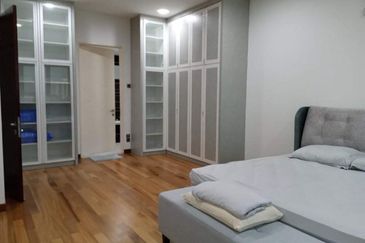
Akira @ 16 Sierra (Sierra 9)
Puchong South, Selangor
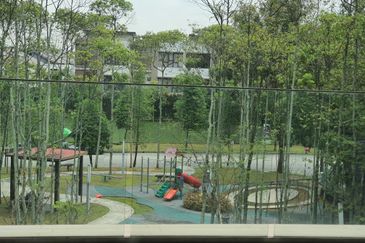
Akira @ 16 Sierra (Sierra 9)
Puchong South, Selangor
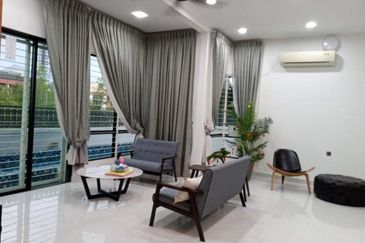
Akira @ 16 Sierra (Sierra 9)
Puchong South, Selangor
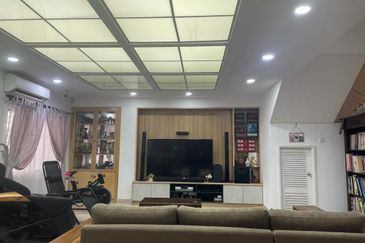
Bandar Puteri Puchong
Bandar Puteri Puchong, Selangor
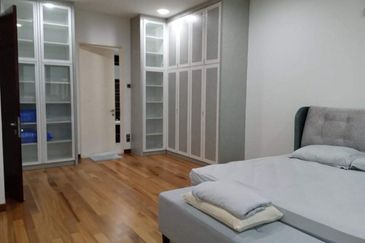
Akira @ 16 Sierra (Sierra 9)
Puchong South, Selangor
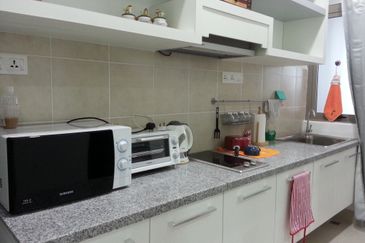
Shaftsbury Serviced Apartments
Cyberjaya, Selangor
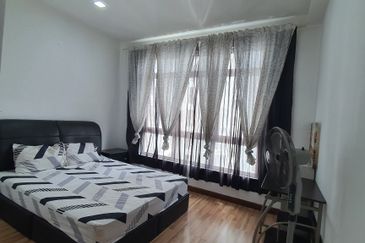
Shaftsbury Serviced Apartments
Cyberjaya, Selangor
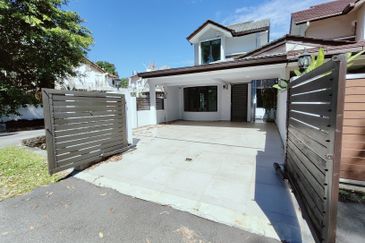
Bandar Kinrara 2
Bandar Kinrara Puchong, Selangor





